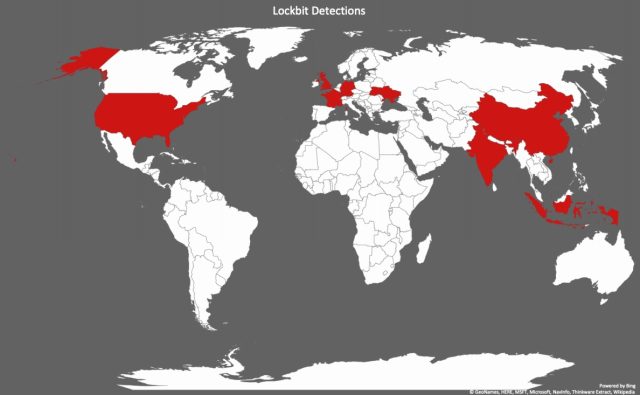Tech Nuggets with Technology: This Blog provides you the content regarding the latest technology which includes gadjets,softwares,laptops,mobiles etc
Thursday, April 30, 2020
Wonder Woman Spin-Off to Come Before Wonder Woman 3, Patty Jenkins Hints
JioMeet Is Jio's Video Conferencing App to Take on Zoom, Google Meet
SpaceX, Blue Origin Win NASA Contract to Build Astronaut Moon Lander
Xbox Series X next-gen gameplay reveal event set for May 7
Microsoft has taken to Twitter to announce their next Xbox Series X event. The event, which will be a digital-only event, will take place on May 7 at 8:30 PM India time. Microsoft has tweeted, “You want to see games for the Xbox Series X? We want to show you games for the Xbox Series X. Check out First Look next-gen gameplay from our global developer's partners within #InsideXbox on Thursday, May 7 at 8am PT.” Since the tweet reads, “gameplay from our global developer's partners”, we think this will be the platform where Microsoft will show off what other developers are working on that will make an appearance on the next-generation consoles. As for first-party games, we think the reveal will be down the line for what Microsoft’s 16 first-party Xbox studios have to offer. It has been confirmed that gameplay for the recently revealed Assassin’s Creed Valhalla will be shown off at Microsoft’s May event. Speaking of Assassin’s Creed Valhalla, the game saw the official unveiling of a gameplay trailer and you can check out details of the game here. Assassin’s Creed Valhalla will be released for the Xbox One, Xbox Series X, PS4, and PS5 towards the end of 2020.
At E3 2019 and E3 2018, Microsoft made it a point to show off a lot of games during their press conference to cement the fact that they were committed to the Xbox and gaming. We think the upcoming May event will be filled with gameplay reveal after reveal from new and existing games. It is possible we get to see more details on the highly anticipated Cyberpunk 2077 among other games.
Microsoft has been front and centre about giving gamer information about the upcoming console, the Xbox Series X. Microsoft took the stage at the Game Awards 2019 to announce the name and the look of the console along with a trailer that showed off Hellblade Senua’s Saga. In 2020, Microsoft gave us an in-depth look at the specifications and build of the console.
Sony, on the other hand, has only shown off the PS5 controller dubbed the DualSense and revealed the specifications of the PS5. It makes sense that Sony is quiet about the PS5 as they still have 2 big games set to launch in 2020 - The Last of Us Part 2 and Ghost of Tsushima. You can read more about the new release date of the two games here.
Apple Sees iPhone Revenues Fall, as Services and Wearables Help It Grow
ICANN blocks controversial sale of .org domain to a private equity firm

Enlarge (credit: dalton00 / Getty)
The Internet Corporation for Assigned Names and Numbers, the non-profit organization that oversees the Internet's domain name system, has rejected a controversial proposal to sell the .org domain to a private equity group for more than $1 billion. It's a serious—quite possibly fatal—blow to a proposal that had few supporters besides the organizations that proposed it.
Currently, the .org domain registry is run by the Public Interest Registry, a non-profit subsidiary of another non-profit called the Internet Society. PIR was created in 2002 to run the .org domain and has been doing so ever since. But last fall, the Internet Society stunned the non-profit world by announcing it would sell the PIR—and, effectively, ownership of the .org domain—to a new and secretive private equity firm called Ethos Capital for more than $1 billion.
The announcement created a swift and powerful backlash. In its resolution formally rejecting the transaction, ICANN says it received its first letter opposing the deal just two days after it was announced. The group would eventually receive letters from at least 30 groups opposing the deal, as well as numerous negative comments during public hearings. Meanwhile, ICANN says, the deal has received "virtually no counterbalancing support except from the parties involved in the transaction and their advisors."
LockBit, the new ransomware for hire: a sad and cautionary tale

Enlarge (credit: Getty Images)
Ransomware has emerged as one of the top threats facing large organizations over the past few years, with researchers reporting a more than a fourfold increase in detections last year. A recent infection by a fairly new strain called LockBit explains why: after it ransacked one company’s poorly secured network in a matter of hours, leaders had no viable choice other than to pay the ransom.
A report published by McAfee documents the effectiveness of this newcomer ransomware. Incident responders with Northwave Intelligent Security Operations aided in the analysis. LockBit is most prevalent in countries including the US, the UK, France, Germany, Ukraine, China, India, and Indonesia.
Attackers started out by researching potential targets with valuable data and the means to make big payouts when faced with the dim prospect of losing access to it. The attackers then used a list of words in hopes of gaining access to one of the accounts. Eventually, they hit the jackpot: an administrative account that had free rein over the entire network. The weak account password, combined with the lack of multi-factor authentication protection, gave the attackers all the system rights they needed.
Amazon says India business most affected due to Covid-19
ICANN board has voted to reject the sale of the .org registry to private equity firm Ethos Capital (ICANN)
ICANN:
ICANN board has voted to reject the sale of the .org registry to private equity firm Ethos Capital — Today, the ICANN Board made the decision to reject the proposed change of control and entity conversion request that Public Interest Registry (PIR) submitted to ICANN.
Amazon sees possible Q2 loss as it forecasts $4 billion in Covid-19-related costs
Reddit has disabled its chat room feature, Start Chatting, a day after launch due to "several errors" in rollout and moderators' concerns over lack of control (Monica Chin/The Verge)
Monica Chin / The Verge:
Reddit has disabled its chat room feature, Start Chatting, a day after launch due to “several errors” in rollout and moderators' concerns over lack of control — The company says the rollout had several errors — Remember how Reddit announced just yesterday that it was introducing built-in subreddit chat rooms?
IDC: Global smartphone shipments dropped 11.7% YoY to 276M during Q1 2020, the largest YoY decline ever (Aimee Chanthadavong/ZDNet)
Aimee Chanthadavong / ZDNet:
IDC: Global smartphone shipments dropped 11.7% YoY to 276M during Q1 2020, the largest YoY decline ever — Shipment volumes suffered its largest year over year decline in the first quarter. — The latest data from International Data Corporation (IDC) has revealed that as the world grapples …
Apple sales inch higher despite coronavirus but CEO Tim Cook sees uncertain future
SoloCoin goes on to win at EUvsVirus hackathon after winning CODE19 in India
SoloCoin is an app that encourages people to stay at home during the pandemic, with reward tokens, which can be exchanged for discounts on services that are useful during the lockdown, such as Netflix and Swiggy. The app came in third at the CODE19 hackathon organised in India on April 10, with the winners announced 4 days ago. The CODE19 hackathon was an effort to quickly find technological solutions for the challenges faced by the Covid-19 outbreak and the following nationwide lockdown. On April 30, there was more good news for the app, as it went on to win first place in the “other” subcategory of the “Social & Political Cohesion” category of the pan European EUvsVirus hackathon.
The founder of the app is India based Arbob Mehmood, a 22 year old who has previously founded Bramble. The main product of Bramble is an API that allows developers to reward gamers in cryptocurrencies for playing their games. The experience Mehmood gained from working with Bramble was used to work on SoloCoin. Specifically, a similar gamification system was used to reward people for staying at home, instead of playing the game. SoloCoin is an app that gamifies social distancing and rewards people with SoloCoins, a token currency within the application, that can be exchanged for discounts of services such as Amazon, Netflix, Swiggy, Zomato and other services that are required for staying at home. Currently, the coupons offered on the app are sourced through third party affiliates, but the team is working on integrated these coupons natively.
Building a team and onboarding partnersMehmood is an avid reader of our magazine, and we reached out to him to learn more about the application. One of the things that we noticed was that signing up for the app has a waitlist,and it has not been released just yet. If you are interested in the app, you can sign up for the waitlist here. One of our first questions was, why does the app have a waitlist in the place? Mehmood replied, “The app is still in development. It’s in private beta right now and is only accessible via an invite-only system that too within our community. We are planning on launching this app next month globally so we want some people to try it firsthand and give feedback so that we can release a relatively bug-free app.”
One of the effective ways in which the app, and the invite system is marketed and propagated, is through social media influencers. We asked Mehmood how the experience of working with influencers was. He responded, “I had worked with influencers in my previous startups, so, it was not new to me. We also have a community member with lots of influencer connections that helped us in connecting with them. The primary thing to know while talking with influencers is their charge because they negotiate way too much. Now, we were lucky here because we are an open-source startup tackling the COVID crisis so many of them agreed to do some of the marketing for free. Influencers can get you a great RoI if you choose them carefully according to your target market and have a way with negotiations.”
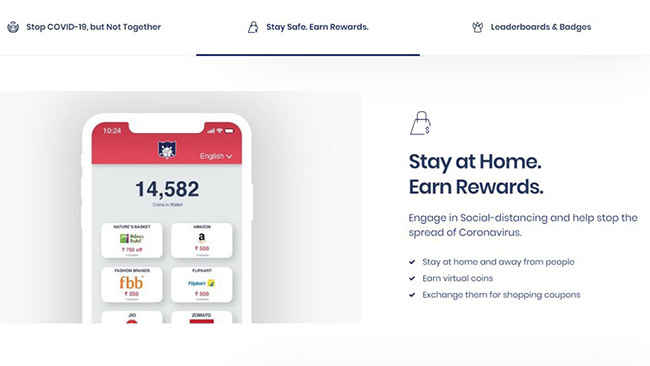
One of the reasons why the app is so successful, is that Mehmood put together a really good team to work on it. This team includes many people from around the world, who are really enthusiastic about the idea of the app. We asked him about the team and how it came together. Mehmood responded, “When I had the idea, I was building it on Python's Beeware toolkit which ports python code to a native mobile app. But it's features were limited. Then, I heard about COVID hackathons happening across the country. So, I started to scout for members across hackathons. Since the idea was innovative and impactful, many amazing people joined my team. then the team decided to make it on native Android and iOS directly for better usability and support. We have a group of open-source collaborators from around the world including startup founders & CXOs, people from IITs, BITS, Stanford, Microsoft, Uber, Github, Neuro-Researchers, and more among our community. The core team has 7 people in it with 20+ contributors across the different domains. The community count is 300+. The product is built 100% remotely.”
Apart from a great team, Mehmood has managed to onboard a large number of partners in a remarkably short span of time. We asked him how he achieved this, to which Mehmood said, “cold emails. Linkedin messages to senior employees and twitter DMs. basically, hustling our way through the partner contact. Our community members have worked very hard to get partners on board, however, we are still waiting for big guys like Amazon, Zomato and Swiggy to respond and officially come onboard (The coupons you’re seeing on our app page is basically affiliate coupons from other coupon websites.) but other big brands like Yatra’s CEO, 1MG, FitIndian, etc. have showed interest in us and are looking to integrate their services on our app. Again, a sense of contribution towards something bigger has helped us a lot in the exposure of our product. Brands genuinely want to join such noble cause and do their part in stopping the spread of COVID. So, I’d like to take this opportunity and invite potential partners who are reading this to join us, promote your services on our app, and help stop the spread of coronavirus.”
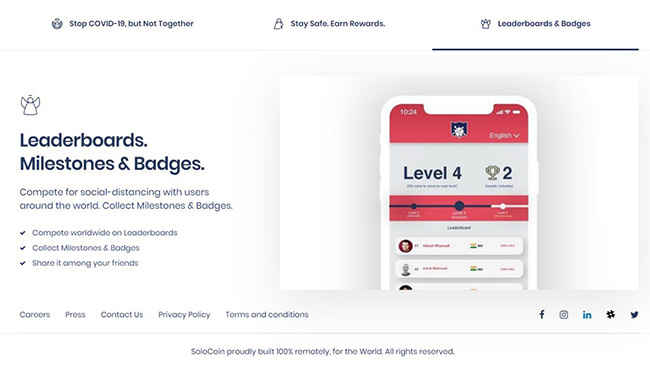
One of the things that really stood out to us was how awesome the UI was. We asked Mehmood about the process behind creating this aspect of the app. Part of the magic is continuous iterations based on user feedback. Mehmood responded, “we are an open-source, decentralized, community-based initiative. Brilliant People from all walks of life, around the world, have come together to make this app a success. Me and my teammate handle most of the design. I have great amount of experience in designing consumer and blockchain apps and my teammate Adesh Bhansali (a graduate from the Indian school of design and innovation) work on all the designs. I create a rough wireframe/mockup and he adds necessary colors and makes it more aesthetically pleasing to the users. Then we show the designs to the community and get feedback. Getting feedback is the most important part here since it helps us in getting different perspectives and ideas. Our primary goal with the design is to make our core features easily accessible and feel pleasing on the eyes so that people can interact with it more. And, after we’re done we finalize it and move it to frontend devs for final integration.”
One of the things that Mehmood pointed out to us, was that what really motivated people in using the app was not the money they got for discounts on products and services, but the knowledge that their efforts had in some way contributed to the global fight against the pandemic. We probed Mehmood on how he came to this realisation, and he said, “One thing I've noticed while building our product is the founder's vision and the potential impact of the said product is very important. When I first pitched the idea of SoloCoin, I was alone. But the idea was innovative and has never been done before. The vision I put to gamify social-distancing and help to stop the spread of COVID resonated with people and that helped us in getting amazing people with great skills from all over the world to voluntarily work on my idea without any financial incentive. I don’t think this would’ve have been possible if I had pitched a me-too idea or a less impactful idea in front of people. This is true for regular users and potential customers as well. There are many rewards app but the only reason we have received this much interest from the community and waitlist registration is that we were doing something that will help make the world a better place. We have learned that working towards something bigger is a much bigger reward than any discounts. With our app users had a sense of belonging and contribution towards a bigger cause. They are proud of it. And, it doesn’t hurt that by doing so, they can earn rewards and recognition in their social-circle.”
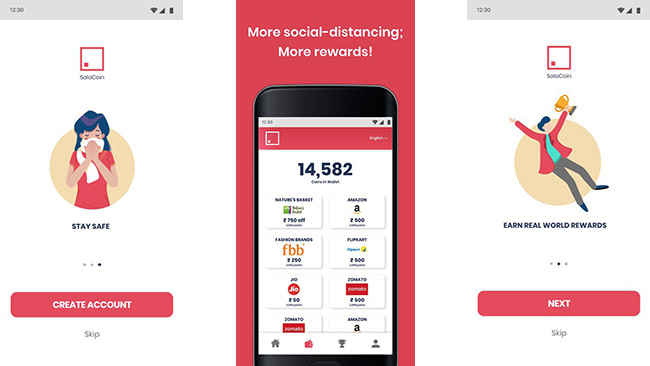
We then asked Mehmood on what are his future plans for the app, now that SoloCoin has won a national level and an international hackathon. Mehmood replied, “Currently, our app is focused on the COVID-affected world and how it can help stop the spread of coronavirus. Our near-future plans are: Proximity-based social-distancing to track if the user in your proximity is infected or not, rewarding for good habits like washing hands, timely self-isolation, Yoga, etc. determining efficient/less crowded routes for commuting and avoiding people, giving users the possibility to chat with nearby quarantined people, map list of nearby available essential stores for groceries, medicines, etc and giving users the possibility to add a mask to their profile picture to tell people they are practicing social-distancing.”
We asked Mehmood what his plans for the app are once the pandemic is over. The answer was really interesting. The app that rewarded people for staying at home, will shift to reward people to coming together! Mehmood replied, “For the post-COVID world, We have identified many ideas on what we can do with our tech post-COVID. Our app can be used for concerts/stores, basically to gather people. The more they stay the more they earn. That way sponsors will get better revenue as well. Office spaces can use this (technology) to incentivize the employees to stay in longer to increased points (the longer they’re connected to the office wireless can be a marker). At the current stage, the app is used as a Social-distancing app with a home geo-fence. After COVID, we can increase the geo-fence to multiple locations like concerts, malls or local stores. Now if you think about it we're venturing into not a consumer app space, but rather the ad-tech space. Our app can now be at the forefront of hyperlocal based targeted ads, basically directly competing with Google's and Facebook's Pay Per Click.”
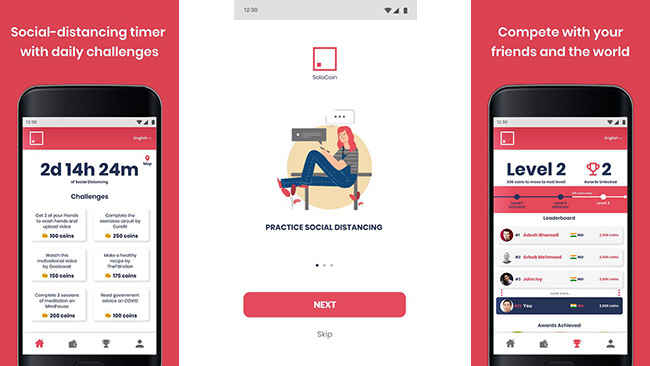
We then asked Mehmood to share with us, and other readers his personal journey with Digit as a reader of the magazine. Mehmood replied, “Digit has played a vital role in the development of my tech/startup mindset. I’m reading Digit since I was 13, mostly purchased from the nearest railway station. I used to read Chacha Chaudhary and Billoo a lot during those times. But one day while I was browsing for something different I encountered Digit. The shopkeeper recommended to me that it has computers and mobile phones in it. I loved computers and working on the computer since when I was 8 but never thought to do anything with it except for getting a job. Once I got the magazine I was hooked. I got into tech after reading amazing articles on digit. I realized how awesome career in tech can be. Not to mention the articles about tech entrepreneurs have motivated me to start my own tech startup and that led me to learn to program and founding my first startup at the age of 17.
I was fortunate enough that my parent have allotted the money for me to purchase two magazines each month - one digit and another Chip, every month. But let me tell you, digit was an expensive magazine for any 13 yr old at that time and buying directly from stores is not at all cheap. I used to eagerly wait for the 2nd date of every month for Digit to get to the store. However, I somehow convinced my parents to let me subscribe to the digit, and to this day I subscribe to it. (I, however, paused the subscription due to severe lack of time because of my startup and COVID, but expecting to resume soon) The things digit taught me about tech and the awesomeness in tech are priceless and I thank every digit member and their articles, which helped a simple boy from small town to put on a path to tech-entrepreneurship and help me reach where I am today. But, picture Abhi baaki hai mere dost. Much more amazing things to come as I’m still 22.”
We followed that up by asking Mehmood what his favorite sections were, to which he replied, “My favorite sections are: Robert’s Column (1st priority), Agent 001 (For recommendations and error fixing - I like to be called the Tech guy in my network.), the reviews (because not everyone in the tech has a better parameter to judge gadgets like you guys), Digit Diary and boo-man obviously (To get a different perspective of the world), the small article snippets on the top (much informative stuff there), DGT section (love moonshot products), and last but not the least, ANNIVERSARY EDITIONS.” Watch out for our next anniversary edition, which is right around the corner.
Amazon tells its Seattle and Bellevue employees already working from home since early March that they "are welcome to do so until at least October 2" (Benjamin Romano/The Seattle Times)
Benjamin Romano / The Seattle Times:
Amazon tells its Seattle and Bellevue employees already working from home since early March that they “are welcome to do so until at least October 2” — Amazon told its corporate employees working from home since early March that they “are welcome to do so until at least October 2 …
The UN's social distancing app, 1point5, is largely ineffective at monitoring distance between people, indiscriminately picking up any Bluetooth signals (Joseph Cox/VICE)
Joseph Cox / VICE:
The UN's social distancing app, 1point5, is largely ineffective at monitoring distance between people, indiscriminately picking up any Bluetooth signals — This week a division of the United Nations announced its new social distancing app designed to help alert people when they get too close …
Reliance Jio Q4 net profit nearly triples on tariff hikes, beats expectations
Reliance Jio's hand at video-conferencing: Jio Meet app coming soon
Digital ad market is avoiding coronavirus disaster, say tech giants
Walmart is piloting a 2-hour "Express" grocery delivery service for an extra $10 fee; plans to expand to 1K stores in May, using its 74K+ "personal shoppers" (Sarah Perez/TechCrunch)
Sarah Perez / TechCrunch:
Walmart is piloting a 2-hour “Express” grocery delivery service for an extra $10 fee; plans to expand to 1K stores in May, using its 74K+ “personal shoppers” — Record usage of grocery delivery services amid the COVID-19 pandemic has led to delayed orders …
Pandemic conspiracy theories are being spread using Wayback Machine links of content already discredited by fact-checkers and even deleted (Bobbie Johnson/MIT Technology Review)
Bobbie Johnson / MIT Technology Review:
Pandemic conspiracy theories are being spread using Wayback Machine links of content already discredited by fact-checkers and even deleted — Pandemic conspiracy theorists are using the Wayback Machine to promote “zombie content” that evades moderators and fact-checkers.
The ‘PuffPacket’ could help researchers learn when, how and why people vape
Vaping is a controversial habit: it certainly has its downsides, but anecdotally it’s a fantastic smoking cessation aid. The thing is, until behavioral scientists know a bit more about who does it, when, how much and other details, its use will continue to be something of a mystery. That’s where the PuffPacket comes in.
Designed by Cornell engineers, the PuffPacket is a small device that attaches to e-cigarettes (or vape pens, or whatever you call yours) and precisely measures their use, sharing that information with a smartphone app for the user, and potentially researchers, to review later.
Some vaping devices are already set up with something like this, to tell a user when the cartridge is running low or a certain limit has been reached. But generally when vaping habits are studied, they rely on self-report data, not proprietary apps.
“The lack of continuous and objective understanding of vaping behaviors led us to develop PuffPacket to enable proper measurement, monitoring, tracking and recording of e-cigarette use, as opposed to inferring it from location and activity data, or self-reports,” said PhD student Alexander Adams, who led the creation of the device, in a Cornell news release.
The device fits a number of e-cigarette types, fitting between the mouthpiece and the heating element. It sits idle until the user breathes in, which activates the e-cigarette’s circuits, and the PuffPacket’s as well. By paying attention to the voltage, it can tell how much liquid is being vaporized, as well as simpler measurements like the duration and timing of the inhalation.
This data is sent to the smartphone app via Bluetooth, where it is cross-referenced with other information, like location, motion and other metadata. This may lead to identifiable patterns, like that someone vapes frequently when they walk in the morning but not the afternoon, or after coffee but not meals, or far more at the bar than at home — that sort of thing. Perhaps even (with the proper permissions) it could track use of certain apps — Instagram and vape? Post-game puff?
Some of these might be obvious, others not so much — but either way, it helps to have them backed up by real data rather than asking a person to estimate their own usage. They may not know, understand or wish to admit their own habits.
“Getting these correlations between time of day, place and activity is important for understanding addiction. Research has shown that if you can keep people away from the paths of their normal habits, it can disrupt them,” said Adams.
No one is expecting people to voluntarily stick these things on their vape pens and share their info, but the design — which is being released as open source — could be used by researchers performing more formal studies. You can read the paper describing PuffPacket here.
Wednesday, April 29, 2020
Microsoft revenue beats as remote work feeds cloud demand, boosts Teams
Twitter Opens Up Data of COVID-19 Tweets for Researchers to Study
Microsoft Sees Teams, Xbox Usage Rise Thanks Remote Work and Lockdowns
Google Pixel 4a could go on sale from May 22 but will it launch in India
Google Pixel 4a is a much-anticipated smartphone that has often been leaked with pictures of retail boxes being spotted on the internet recently. As per the latest piece of information, the Pixel 4a is slated to go on sale from May 22 in Germany. The phone was earlier set to be unveiled during Google I/O 2020, the company’s annual developers conference but the event was called off due to the Coronavirus outbreak across the world.
The successor to last year’s Pixel 3a, the 4a is expected to be a slightly trimmed down version of the Pixel 4 and is aimed at markets like India where the Pixel 4 didn’t launch. According to a German report, the 4a will likely go on sale from May 22 and will be offered by Vodafone under contract. The phone is reportedly priced starting at 399 Euros which roughly translates to around Rs 32,000 by direct conversion.
Google Pixel 4a comes after Apple announced an affordable iPhone SE 2020 and OnePlus launched its latest OnePlus 8 series of smartphones earlier this month. The report hints that as the sale commences from May 22, we can expect Google to announce the 4a officially just days prior.
Google Pixel 4a leaked specificationsThe Google Pixel 4a is rumoured to feature a 5.8-inch Full HD+ (2340 x 1080 pixels) resolution OLED screen. The display has a punch-hole cutout for the front-facing 8MP camera with an 84-degree field-of-view.
It could be powered by the Qualcomm Snapdragon 730 chipset with an octa-core CPU and Adreno 618 GPU. This is paired with 6GB RAM and upto 128GB storage options to choose from.
Pixel 4a has a single 12.2MP camera with support for both OIS and EIS, while the front-facing camera is reportedly the same as the Pixel 3a. The phone’s rear camera is capable of recording in 4K at 30fps, 1080p at 30/60/120fps and 720p at up to 240fps while the selfie camera can shoot Full HD videos at 30fps. The phone comes with a 3.5mm headphone jack and could come in two colours-- Just Black and Barely Blue.
It is fitted with a 3,080mAh battery with support for 18W fast charging but skips out on wireless charging.
The 4a does have the company’s proprietary Titan M security chip but still misses out on the Pixel Neural Core. Also missing is the array of Soli radar chip and other sensors that debuted on the Pixel 4 last year. This, hopefully, indicates that Google could bring the Pixel 4a to India as the presence of Soli chip earlier on the Pixel 4 didn’t allow it to get certified for commercial use according to Indian laws.
Facebook Reports 'Signs of Stability' in Ad Spending After Coronavirus Drop
Meet EventBot, a new Android malware that steals banking passwords and two-factor codes
Security researchers are sounding the alarm over a newly discovered Android malware that targets banking apps and cryptocurrency wallets.
The malware, which researchers at security firm Cybereason recently discovered and called EventBot, masquerades as a legitimate Android app — like Adobe Flash or Microsoft Word for Android — which abuses Android’s in-built accessibility features to obtain deep access to the device’s operating system.
Once installed — either by an unsuspecting user or by a malicious person with access to a victim’s phone — the EventBot-infected fake app quietly siphons off passwords for more than 200 banking and cryptocurrency apps — including PayPal, Coinbase, CapitalOne and HSBC — and intercepts and two-factor authentication text message codes.
With a victim’s password and two-factor code, the hackers can break into bank accounts, apps and wallets, and steal a victim’s funds.
“The developer behind Eventbot has invested a lot of time and resources into creating the code, and the level of sophistication and capabilities is really high,” Assaf Dahan, head of threat research at Cybereason, told TechCrunch.
The malware quietly records every tap and key press, and can read notifications from other installed apps, giving the hackers a window into what’s happening on a victim’s device.
Over time, the malware siphons off banking and cryptocurrency app passwords back to the hackers’ server.
The researchers said that EventBot remains a work in progress. Over a period of several weeks since its discovery in March, the researchers saw the malware iteratively update every few days to include new malicious features. At one point the malware’s creators improved the encryption scheme it uses to communicate with the hackers’ server, and included a new feature that can grab a user’s device lock code, likely to allow the malware to grant itself higher privileges to the victim’s device like payments and system settings.
But while the researchers are stumped as to who is behind the campaign, their research suggests the malware is brand new.
“Thus far, we haven’t observed clear cases of copy-paste or code reuse from other malware and it seems to have been written from scratch,” said Dahan.
Android malware is not new, but it’s on the rise. Hackers and malware operators have increasingly targeted mobile users because many device owners have their banking apps, social media, and other sensitive services on their device. Google has improved Android security in recent years by screening apps in its app store and proactively blocking third-party apps to cut down on malware — with mixed results. Many malicious apps have evaded Google’s detection.
Cybereason said it has not yet seen EventBot on Android’s app store or in active use in malware campaigns, limiting the exposure to potential victims — for now.
But the researchers said users should avoid untrusted apps from third-party sites and stores, many of which don’t screen their apps for malware.
Dozens of tracking apps for smartphones are being used or developed to help contain the pandemic, despite concerns about security, privacy, and effectiveness (New York Times)
New York Times:
Dozens of tracking apps for smartphones are being used or developed to help contain the pandemic, despite concerns about security, privacy, and effectiveness — Dozens of tracking apps for smartphones are being used or developed to help contain the coronavirus pandemic.
Facebook sees 'signs of stability' in ad spending after coronavirus drop
Amazon.in, Snapdeal in US 'notorious' markets list
Contactless payments, digital loans make kiranas open doors to fintech
Researcher: major sites like Wish and Mailchimp were leaking email addresses to ads and analytics companies including Facebook and Twitter via URL query strings (Zach Edwards)
Zach Edwards:
Researcher: major sites like Wish and Mailchimp were leaking email addresses to ads and analytics companies including Facebook and Twitter via URL query strings — Breaches have been found on websites including Wish.com, JetBlue.com, Quibi.com, WashingtonPost.com, NGPVan.com and numerous other organizations...
YouTube launches a Premium paywall for song lyrics on YouTube Music, after testing it in recent months; users get five free lyrics before they have to subscribe (Abner Li/9to5Google)
Abner Li / 9to5Google : YouTube launches a Premium paywall for song lyrics on YouTube Music, after testing it in recent months; users get...
-
Amrith Ramkumar / Wall Street Journal : An interview with White House OSTP Director Michael Kratsios, a Peter Thiel protégé confirmed by ...
-
http://bit.ly/2XqNIDz
